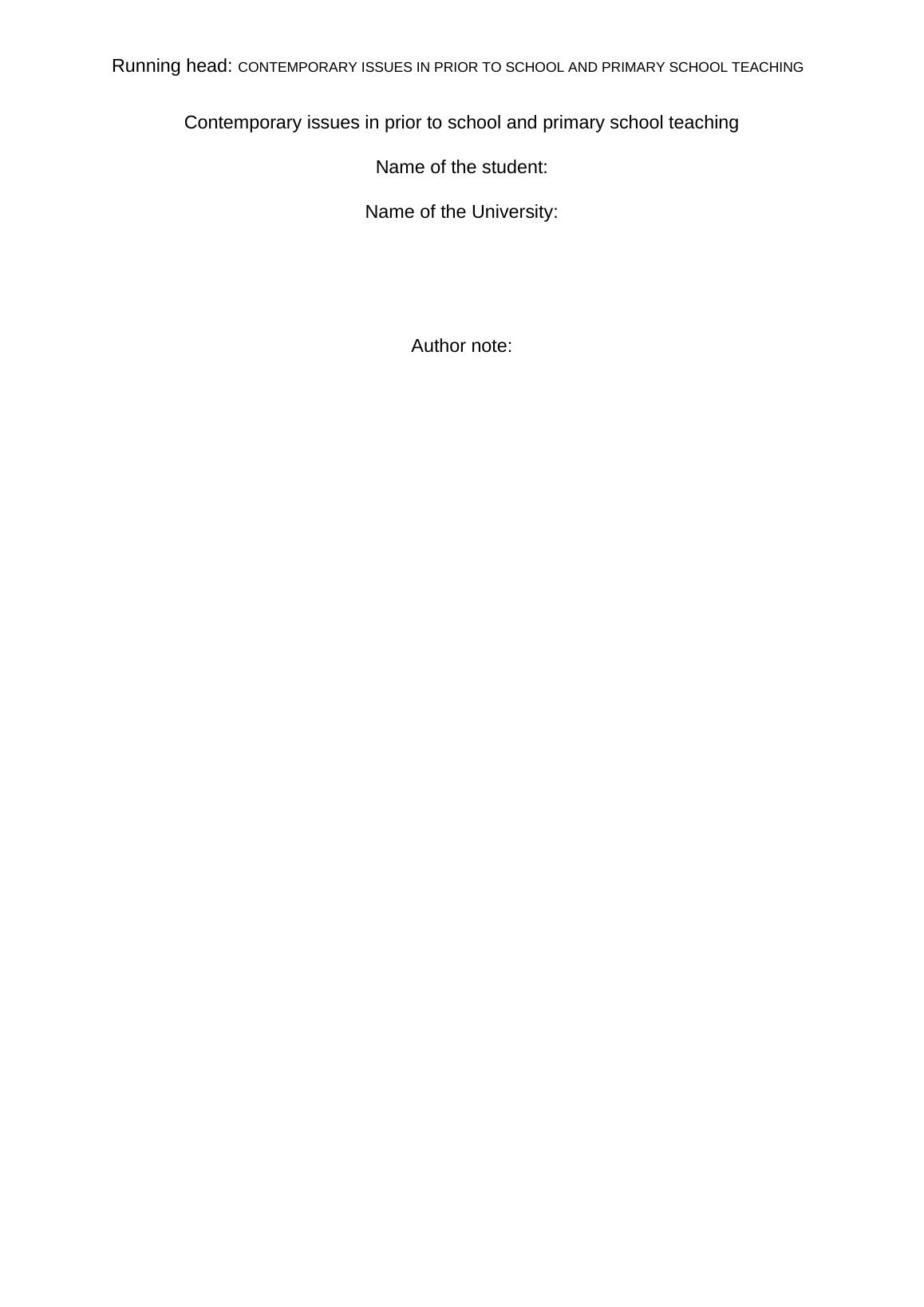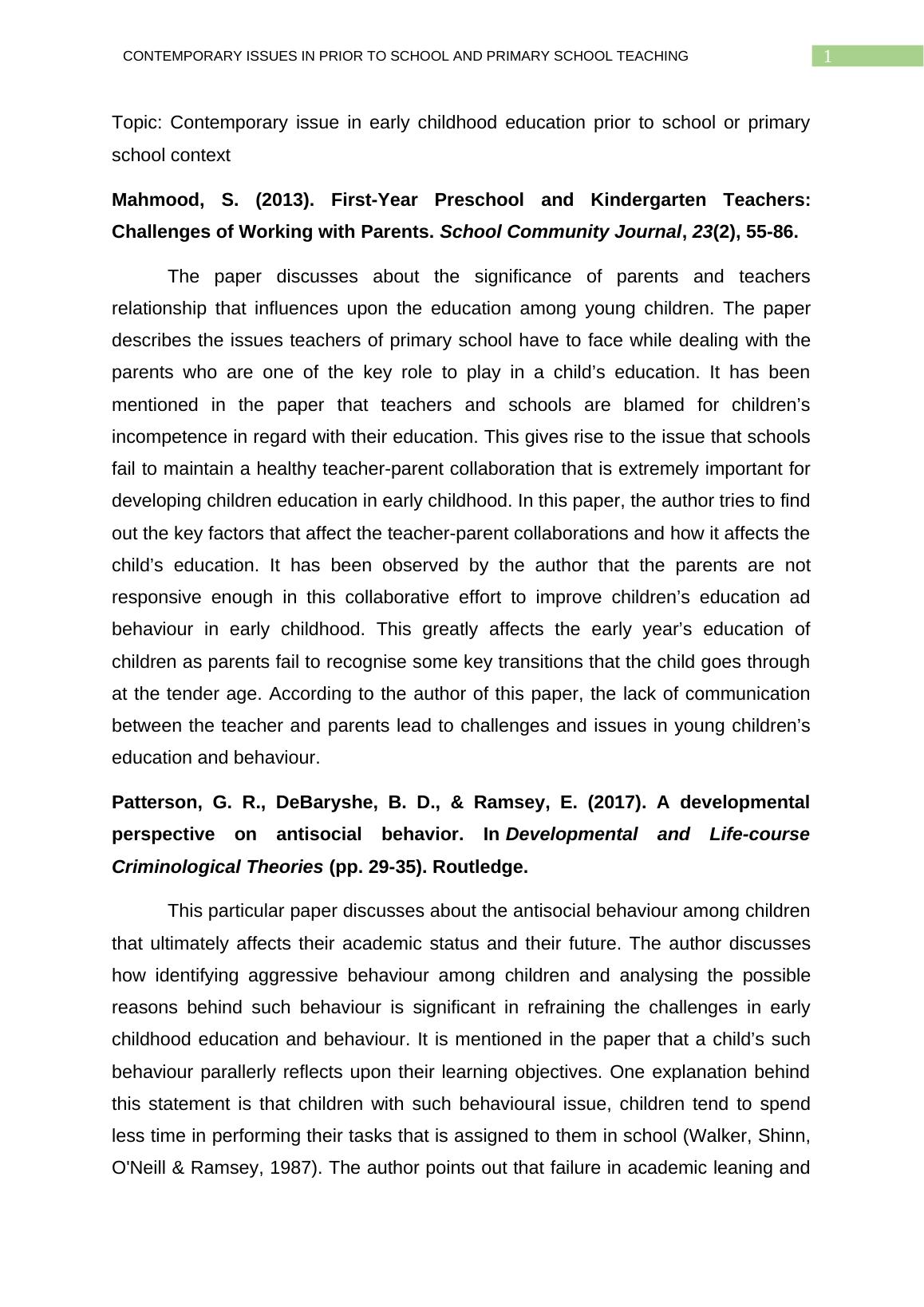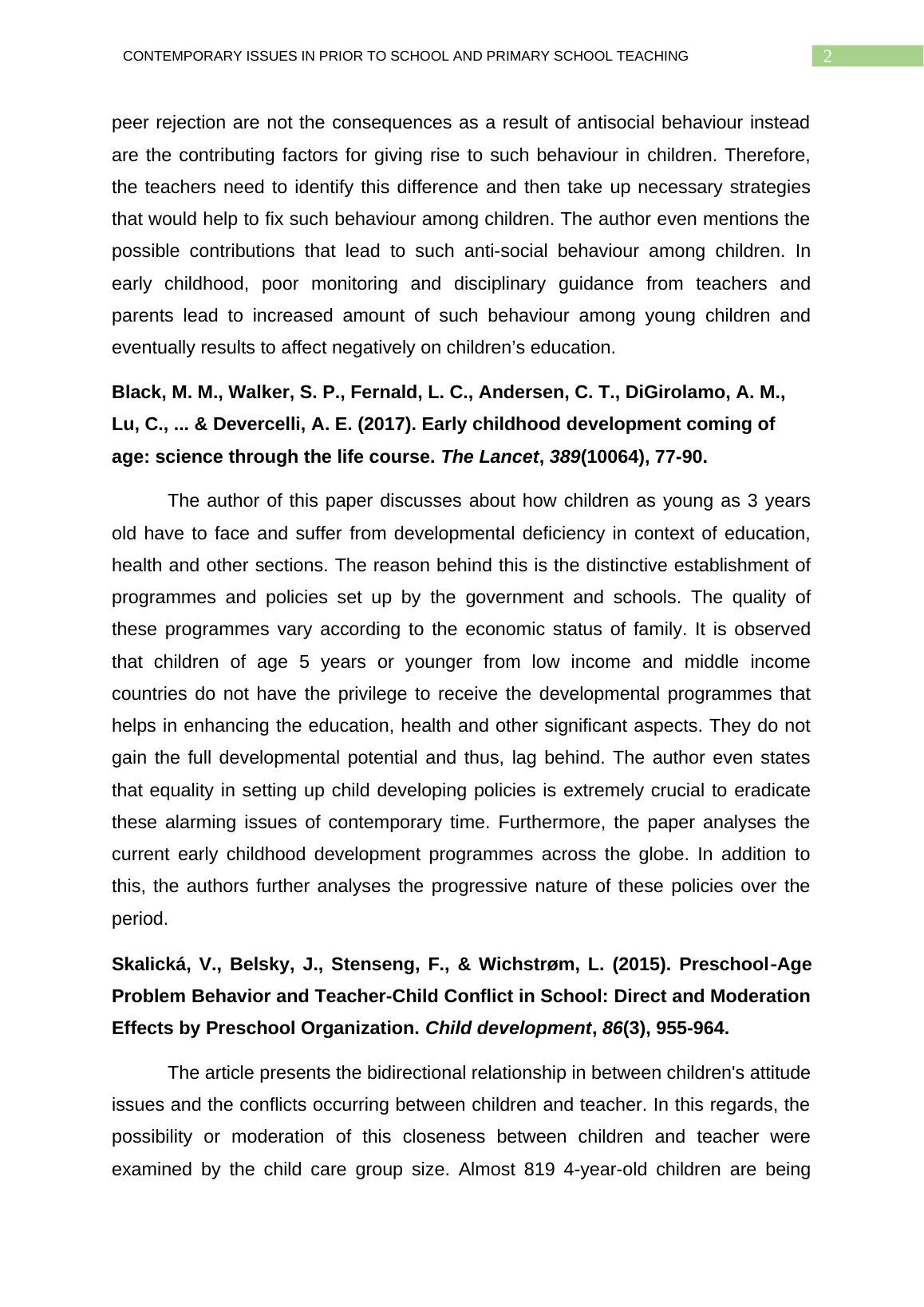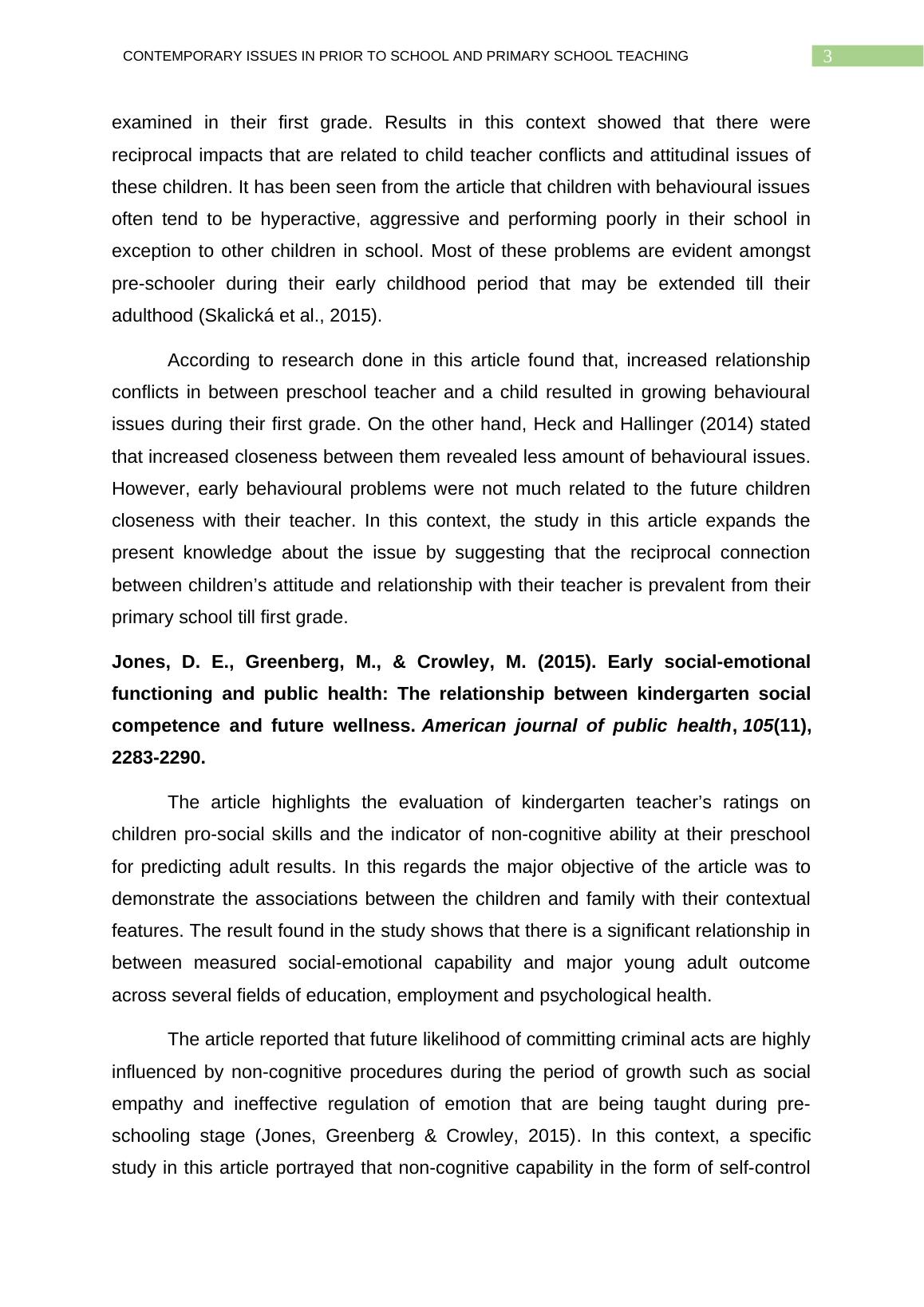Contemporary Issues in Prior to School and Primary School Teaching
Assessment 1 is a Literature Review on a contemporary issue in early childhood education, requiring students to review a minimum of six articles, complete an annotated bibliography, and analyze and evaluate the research findings.
11 Pages2946 Words498 Views
Added on 2023-06-07
About This Document
The paper discusses about the significance of parents and teachers relationship that influences upon the education among young children. The paper describes the issues teachers of primary school have to face while dealing with the parents who are one of the key role to play in a child’s education.
Contemporary Issues in Prior to School and Primary School Teaching
Assessment 1 is a Literature Review on a contemporary issue in early childhood education, requiring students to review a minimum of six articles, complete an annotated bibliography, and analyze and evaluate the research findings.
Added on 2023-06-07
ShareRelated Documents
End of preview
Want to access all the pages? Upload your documents or become a member.
Childhood Studies: Behavioural Engagement in the Transition to School
|10
|2858
|295
Challenges Facing Early Childhood Education
|6
|1302
|360
Leadership in Early Education
|10
|2277
|219
Critical Analysis of Teaching and Learning in Early Childhood Education
|13
|3777
|497
Early Childhood Attachment and Education
|6
|1236
|158
The Effective Practitioner in Early Childhood Education
|14
|3671
|67




